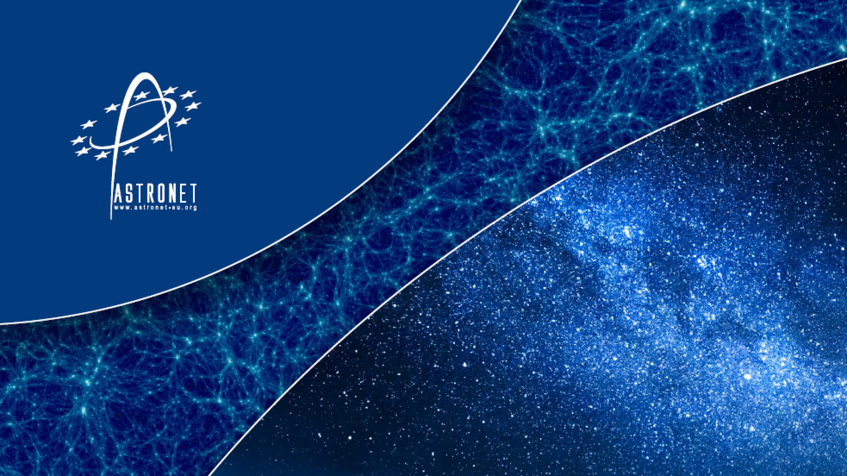Report sets course for future of European astronomy

A new report by an international consortium of leading astronomers sets out recommendations to transform our understanding of the Universe in the next decade by guiding investment priorities for politicians and funding agencies.
The ASTRONET Science Vision and Infrastructure Roadmap 2022-2035 is the latest comprehensive roadmap produced by the ASTRONET network of European funding agencies communities and research organisations.
ASTRONET is an independent consortium whose aim is to create a common science vision for all European astronomy by convening diverse groups to describe the challenges facing some of the biggest questions in science. Panels including over 100 scientists from across Europe and with participation of Austrian astrophysicists fed into the report and a series of public consultations were also held to ensure that it reflected the breadth of views within astronomy. These established key science questions, such as understanding the origin of the Universe and the evolution of planets in our Solar system, and made recommendations on the facilities and resources needed to meet these priorities. A continued supply of highly trained and motivated researchers will also be fundamental to progress and societal engagement. In making its recommendations, the report compliments recently published visions provided by the European Space Agency, the US, and advisory bodies such as the particle astrophysics consortium. The aim of the report is to create an openly accessible resource for policy makers and science leaders to support informed decisions that more effectively and efficiently direct scientific discovery.
The previous ASTRONET Science Vision and Infrastructure Roadmap (published in 2007 and revised in 2015) included recommendations which fed into proposals for world famous scientific infrastructure such as the European Southern Observatory (ESO) Extremely Large Telescope and the Square Kilometre Array Observatory (SKAO).
Through recommendations such as these, the ASTRONET Roadmap has become a valuable source of information on research efforts which benefit both the international research community.
Professor Amelie Saintonge, Professor of Astrophysics at University College London and lead editor of the report, said:
"The technology behind the facilities that allow for groundbreaking Astronomical discoveries often takes decades to mature. This is why it is essential to take a long term and global look at our scientific priorities, as we do in the ASTRONET Science and Infrastructure Roadmap.
The Roadmap highlights the need for a balanced and integrated infrastructure where large flagship observatories are complemented by smaller rapid-response facilities, computation and data centers, as well as laboratory facilities and technology development infrastructures.
Another growing priority of the community is that Astronomical research is conducted in a sustainable and equitable manner, that also fulfils our roles as educators and responsible citizens.
The report highlights the importance of including these considerations right at the first moments of decision making."
You can read the full report and learn more about STFC and ASTRONET on the Astronet website.
About Astronet
ASTRONET was formed in 2005 as a consortium of European funding agencies and research organisations (ESO, ESA and the SKAO are all engaged with its work). One of its key goals is to deliver a strategic plan and an infrastructure roadmap and to promote the adoption of the roadmap recommendations.
ASTRONET was an EU-funded ERA-NET up to 2015, in the context of HORIZON 2020 and with the support of the European Commission. It is now a self-sustained group of funding agencies and associated bodies. ASTRONET seeks to include the whole astronomical domain: from the Sun and our Solar System to the limits of the Universe. Research is advanced using studies from facilities on the ground as well as in space observations alongside theory, laboratory astrophysics and computing.
Contact in Austria / Vertreter Österreichs im ASTRONET Verbund:
Prof. Dr. Bodo Ziegler, University of Vienna, Department of Astrophysics
